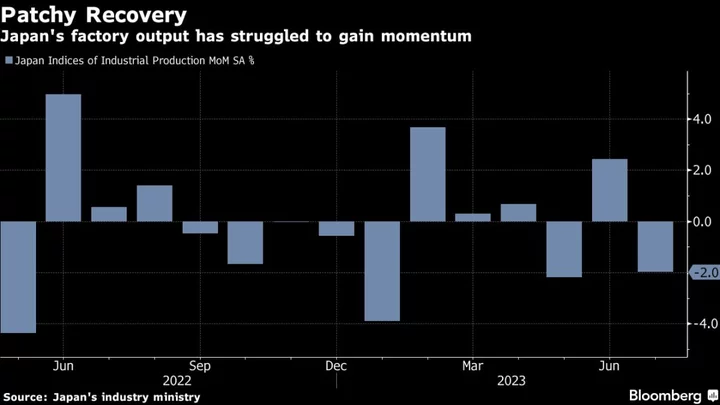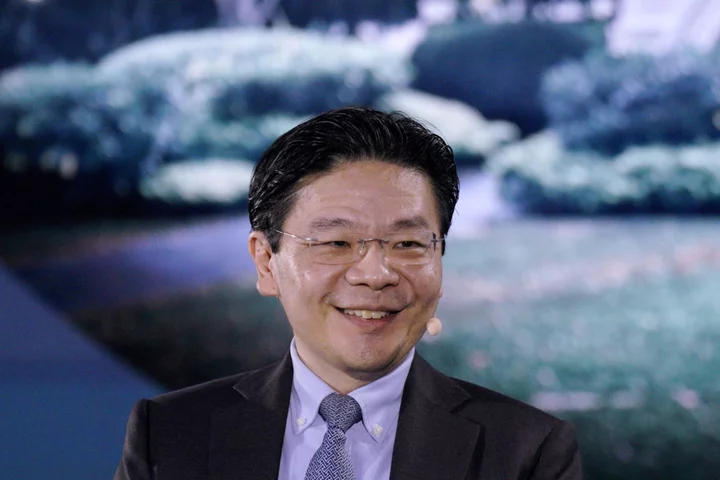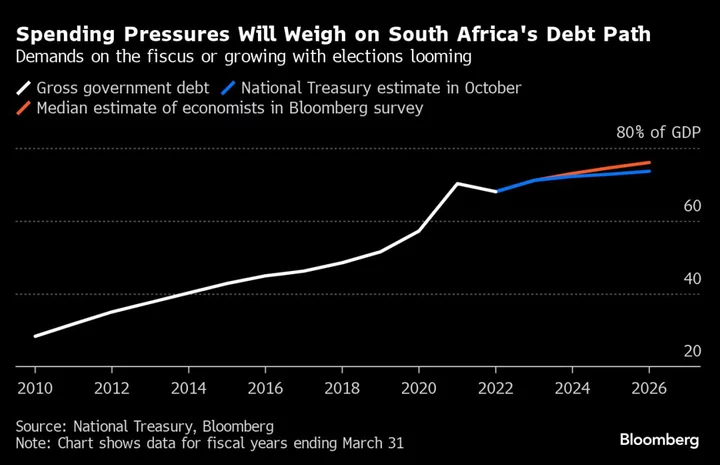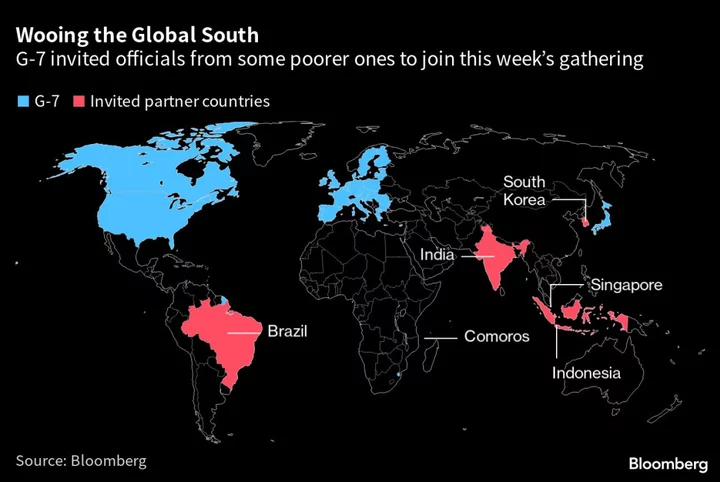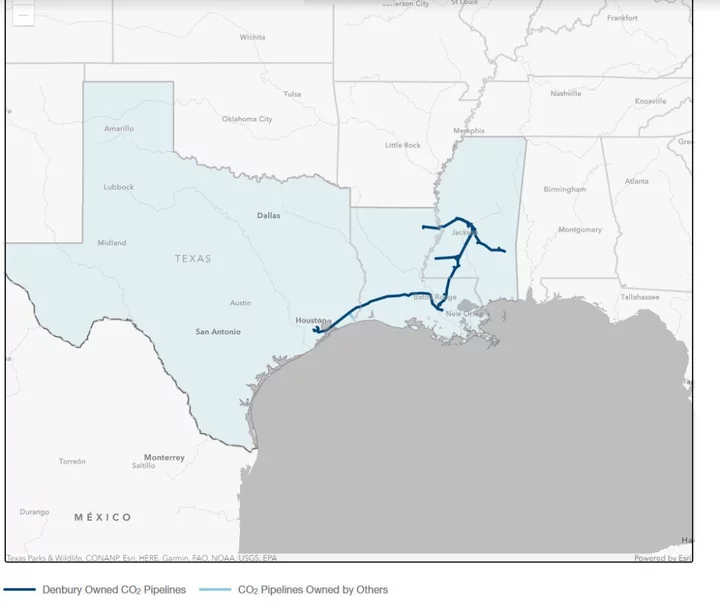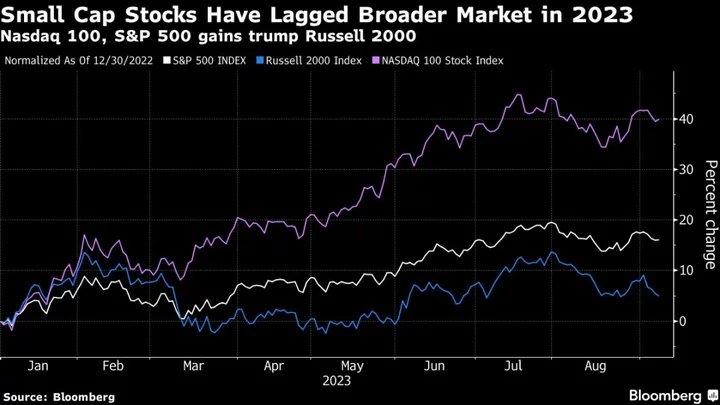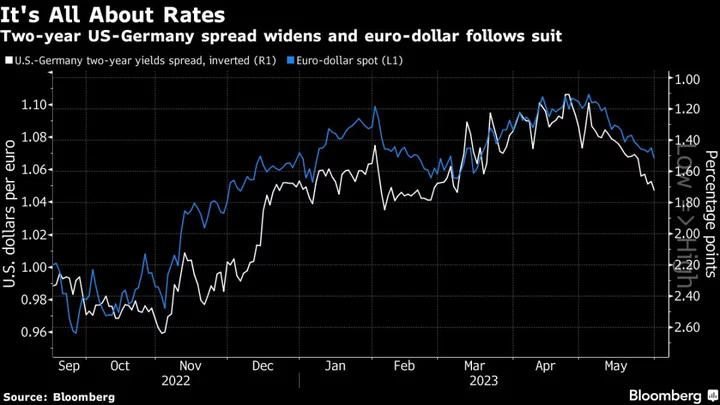Japan’s industrial production fell more than expected in July as slowing economic activity in some overseas markets weighed on demand, while retail sales beat estimates.
Factory output declined 2% from June, the industry ministry said Thursday. Economists had forecast a 1.4% drop. Manufacturing machinery and electronic components were among the biggest drags on overall output, the ministry said. The auto industry was among sectors giving a boost.
A separate report showed that retail sales gained 2.1% in July from June, beating a 0.8% gain forecast by analysts. Sales rose 6.8% from a year earlier, also exceeding estimates.
The weak reading for industrial output signals external demand that powered Japan’s growth in the second quarter may be ebbing, adding to signs that the economy may contract in the third quarter.
As with other economies reliant on trade, Japan is feeling the pinch from China’s economic slowdown, and the risk of deflation there. Other risks to the outlook include ongoing monetary policy tightening in the US and Europe, as authorities in those regions battle rising prices.
In July, Japan’s exports fell for the first time in more than two years, as sharp declines in shipments of chip-making gear and parts outweighed a jump in demand for cars. Exports to China, Japan’s biggest trading partner, slid by 13.4%, the largest drop since January.
“The global trade of goods is slowing down,” said Toru Suehiro, chief economist at Daiwa Securities. “Economies haven’t reached a point where demand is picking up again. I don’t think we can count on external demand to boost production.”
What Bloomberg Economics Says...
“The data show manufacturers facing two strong headwinds: a global electronics slump and slower overall demand from China and the US.”
— Taro Kimura, economist
For the full report, click here
Output is expected to advance in the next two months, with the ministry estimating month-on-month gains of 2.6% and 2.4% in August and September, respectively. The ministry has tended in the past to be optimistic in its predictions.
China’s ban on Japanese seafood imports in the wake of the discharge of treated wastewater in Fukushima is expected to weigh on shipments. If protests by Chinese consumers spread to travel campaigns, it could derail hopes that the resumption of Chinese tour groups might be a boon to Japan’s retailers.
Prime Minister Fumio Kishida is reportedly preparing to announce support measures for the fisheries industry later Thursday. Those steps would come in addition to subsidies to offset soaring gasoline prices, as the prime minister endeavors to support domestic demand by easing rising cost-of-living pressures on households.
The retail sales report showed some bright signs, as purchases of apparel and accessories as well as food and beverages advanced month on month, reversing from setbacks for those products in May and June.
Third-quarter spending will probably be a plus, as the resumption of leisure and entertainment activities and a prolonged heat wave boost spending more than inflation deters it, according to Kazuyoshi Nakata, Senior Economist at Mitsubishi UFJ Research and Consulting Co.
(Adds details from report, economist’s comment)

